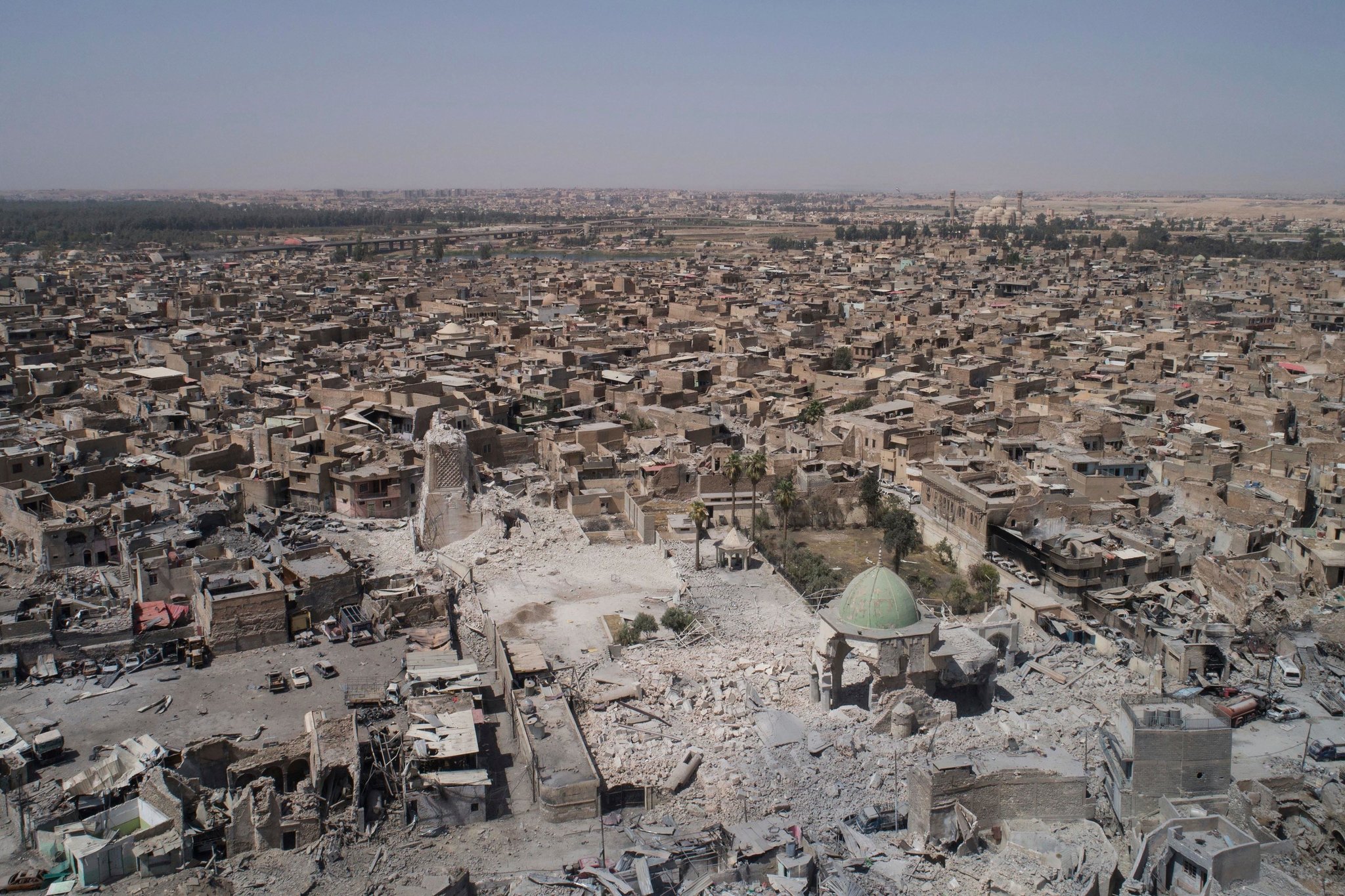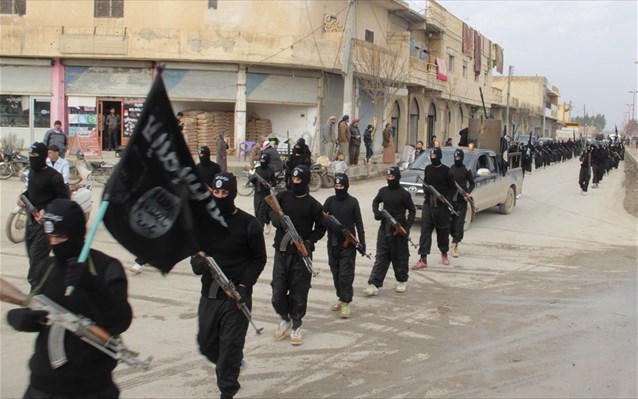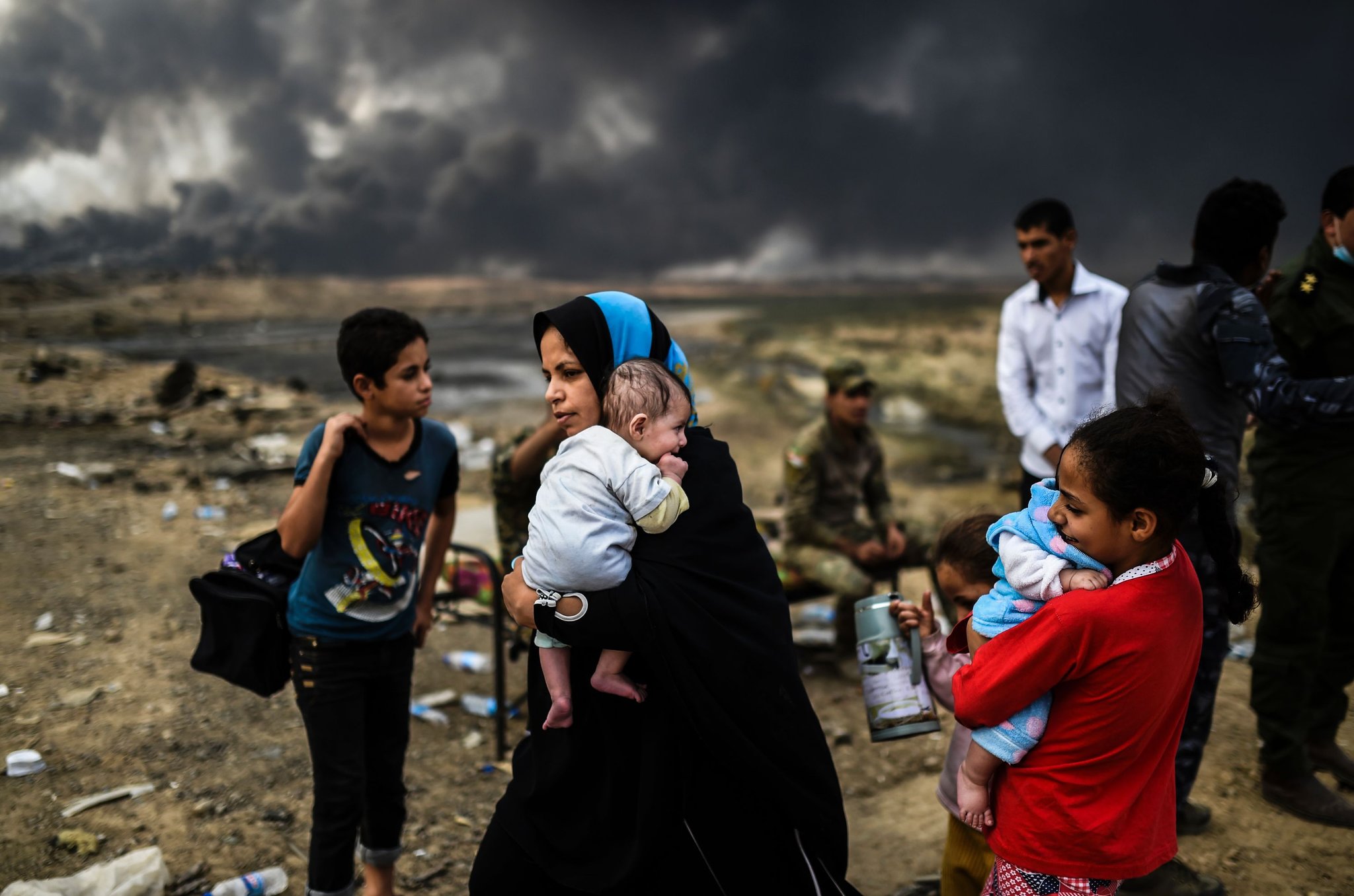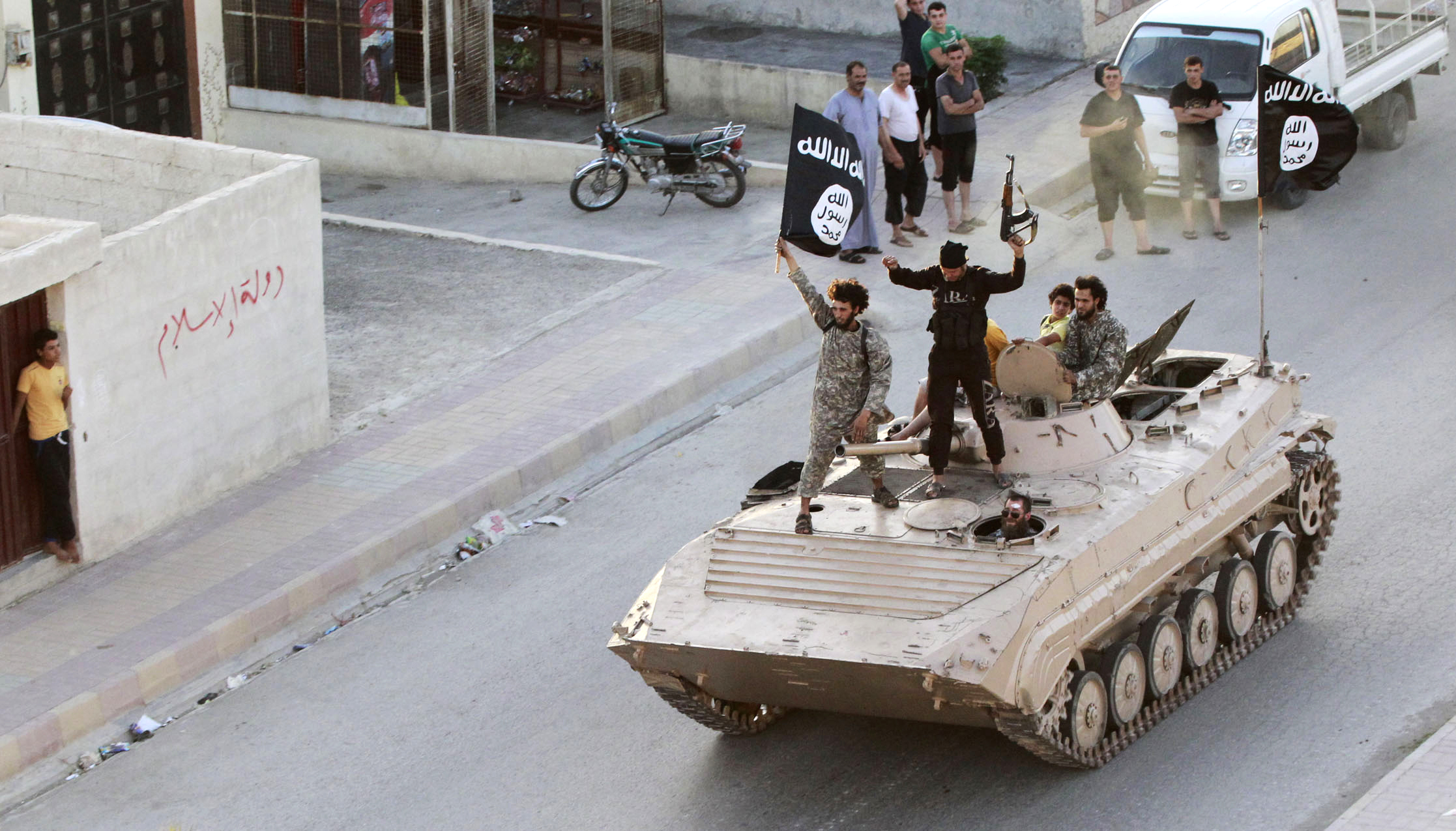Iraq Has Declared The End Of ISIS. Here's What You Need To Know
"Their fictitious state has fallen."
After months of bloody battles, Iraq has finally declared that the ISIS caliphate is no more.
"Their fictitious state has fallen," said Iraqi military spokesperson Brigadier General Yahya Rasool on Thursday, 29 June.
This comes after the Iraqi authorities seized the ancient Grand al-Nuri Mosque - the very place that ISIS leader Abu Bakr al-Baghdadi declared the establishment of the caliphate three years ago in June 2014.
"The return of al-Nuri Mosque and al-Hadba minaret to the fold of the nation marks the end of the Daesh state of falsehood," said Prime Minister Haider al-Abadi of Iraq in a statement, as reported by Reuters. 'Daesh' is the Arabic acronym for the Islamic State.
"We are seeing the end of the fake Daesh state, the liberation of Mosul proves that. We will not relent, our brave forces will bring victory. We will continue to fight Daesh until every last one of them is killed or brought to justice," he added on Twitter.
We will continue to fight Daesh until every last one of them is killed or brought to justice
— Haider Al-Abadi (@HaiderAlAbadi) June 29, 2017
While the fall of the ISIS caliphate marks a major victory, the Iraqi forces are still fighting to round up the rest of the Daesh militants in the Old City
An aerial view of the destroyed Al Nuri Grand Mosque in Old City of Mosul, Iraq.
Image via Felipe Dana/Associated Press via The New York TimesThe Iraqi authorities have been involved in a complex eight-month long battle, Operation Inherent Resolve that begun in October 2016 to expel the ISIS militants from their city. In the process, the nearly 850-year-old mosque was reduced to ruins during fighting between Iraqi government forces and ISIS on 21 June.
BBC reported that Iraqi military claims that the ISIS militants blew up the 12th century mosque and the leaning al-Hadba minaret, but the terrorists are accusing the US-led coalition of destroying the mosque.
Meanwhile, it was reported that Lt Gen Abdul Wahab al-Saadi told the AP that the surrounding areas in Mosul will need to be cleared by explosive experts as ISIS has been known to set up booby trap at areas it has retreated from.
The Islamic State is also losing its grip on its stronghold in Syria, Raqqa
Raqqa has been ISIS' de-facto capital for the past three years, but the coalition made up of Iraqi army, elite counter-terrorism units, and US-backed Kurdish forces have been closing in on the militants in the Syrian city, that's about 160km away from Aleppo.
Thousands of civilians are still trapped in both Mosul and Raqqa, pushing the cities into a large scale of humanitarian crisis.
According to The New York Times (NYT), thousands of children are also stuck in western Mosul due to the battle.
"Boys and girls who have managed to escape show signs of moderate malnutrition and carry psychosocial scars of the conflict," Peter Hawkins, the Unicef representative in Iraq, said in statement, as reported by NYT.
"The retaking of Mosul does not mean an automatic end to the suffering of the 1.5 million people that spent more than two years living under harsh ISIS rule. Despite the declaration, ISIS still controls some areas in the Old City of Mosul and ongoing fighting will continue to threaten the lives of civilians," said Wendy Taeuber, the International Rescue Committee's Iraq director.
Civilians who were displaced in the government operation to retake Mosul near Qayyarah, Iraq.
Image via Bulent Kilic/Agence France-Presse - Getty ImagesSo, what does this mean for ISIS?
In a report by The Independent on the future of ISIS, it highlighted several analysts saying that realistically, it will be difficult for the militant group to survive. Here's why:
An analysis from IHS Markit's Conflict Monitor said that ISIS used to control 90,800sq. km of territory, but after all the air and ground battles by US forces, the militant group's territory has been reduced to around 36,200sq. km.
The terrorist group's revenue has declined greatly. IHS said that in the second quarter of 2015, ISIS' average monthly revenue was approximately USD81 million (RM348 million) but in 2017 it has fallen to USD16 million (RM69 million). That's a reduction of almost 80%.
Columb Strack, a senior Middle East analyst at IHS Markit, said in the report that ISIS' governance project has failed. "By the end of the year, [the quasi-state will be reduced to a] string of isolated urban areas that will eventually be retaken over the course of 2018," added Strack.
However, Dr Shiraz Maher, deputy director of the International Centre for the Study of Radicalisation at King's College London told The Independent that despite its fall in Iraq, ISIS is far from over
"The collapse of Islamic State as a proto-state or governing body, will not signal its overall demise as a group. It will continue to linger as both an insurgency and terrorist movement. Defeating it in those terms is an altogether more complicated and longer-term ambition which will still take many years," explained Dr Maher.
Dr Andreas Krieg of King's College London's Department of Defence Studies said, "As the state project fails the global jihadist narrative will go into overdrive. ISIS didn’t originally have the al-Qaeda ambition of targeting the far away enemy. It was localised, forming alliances with local Sunni tribes against the common Shia enemy. But now they have moved in that direction, and if it means attacking the West they will do that".
To make matters worse, Iraq is still laden with sleeper cells that are already starting to attack certain areas that were considered safe in Mosul, as the society becomes even more militarised and divided
Dr Dylan O’Driscoll of Manchester University’s Humanitarian and Conflict Response Institute said when speaking to The Independent, that the Iraqi society needs to bridge the gaps and unite to solve this political and structural problem that is plaguing the country.
Ultimately, Dr Krieg said that the coalition military forces do not have a clear strategy on how to defeat the group's extremist ideology, but just its military force.
"ISIS is not the root cause of Iraq's problems, it's a symptom of it," he added.



